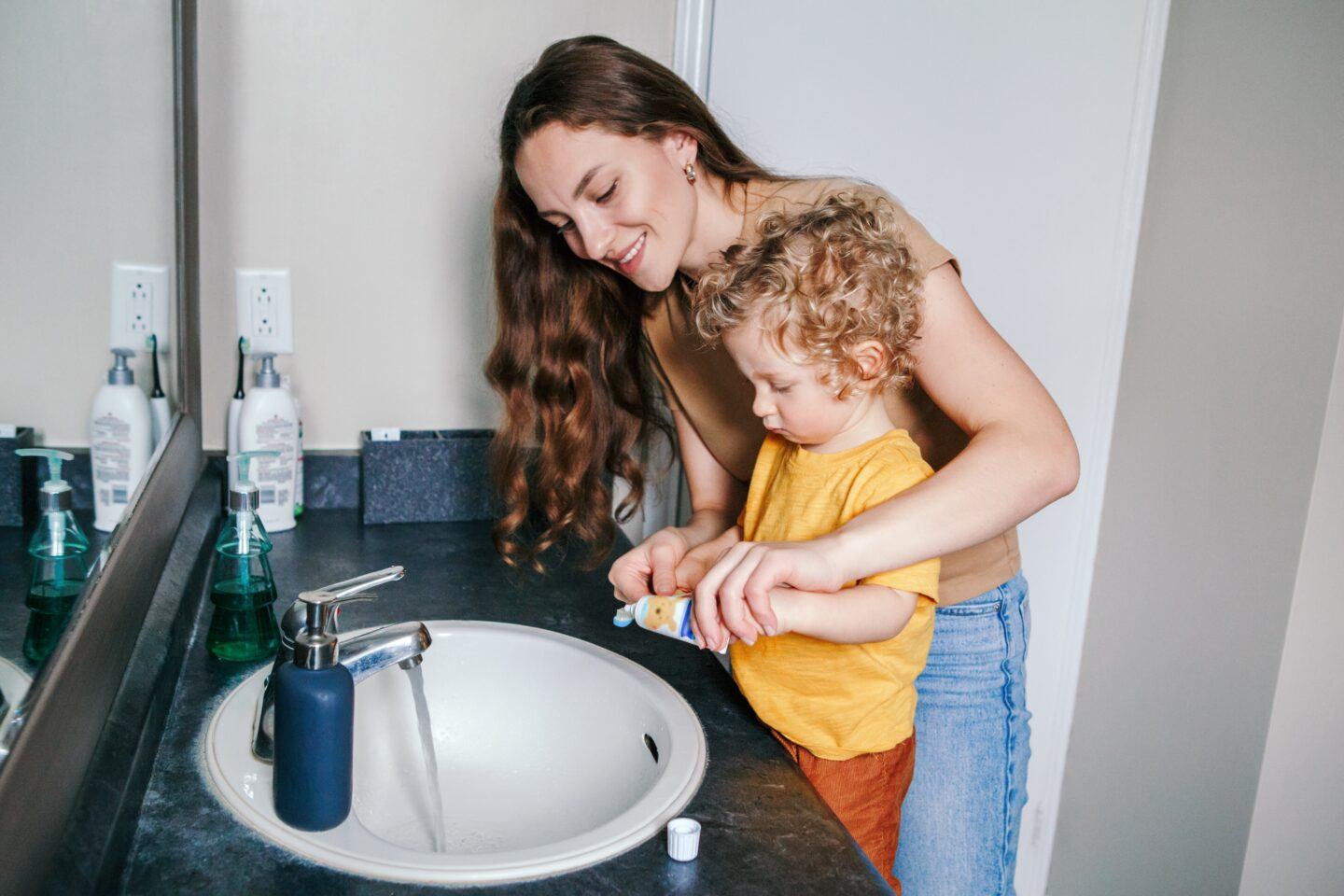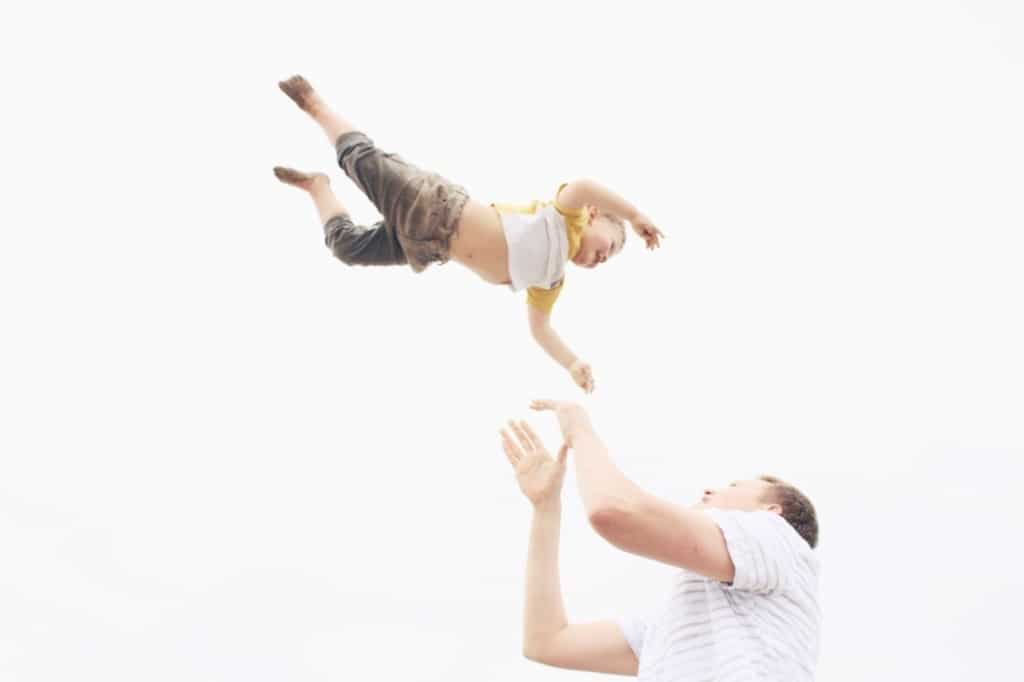A little praise helps toddlers brush their teeth for longer, study finds
Turns out, those toothbrushing battles can build persistence.

Hanni/Twenty20
The final battle of the day with your little one may not be getting them to go to sleep—it could be simply getting them to brush their teeth. The way you handle this sometimes not-so-simple task could help your child develop the skill of persistence, says new research.
To understand what toothbrushing can teach both you and your child about persistence, specifically, researchers examined the way that parents spoke to their 3-year-old children. The big find: A little praise means your kiddo is likely to brush longer. And that can help them learn persistence, they said.
Why persistence is important
“Persistence in early childhood has consequences for many life outcomes, from what children learn to whether they maintain friendships or reach their goals,” said Julia Leonard, PhD, an assistant professor of psychology at Yale University, one of the researchers, in a statement. “It’s a really important skill for children to develop.”
Leonard conducted the research with Allyson Mackey, PhD, an assistant professor of psychology at the University of Pennsylvania. It was published in Child Development.
Mackey typically has parents and children come to her lab to be observed for research, but she wanted a behind-the-scenes look at the interactions that occur at home. That’s why she recorded 81 families in their homes for 16 days in a row.
Praise encourages persistence
Leonard and Mackey said they picked toothbrushing because it’s not exactly a habit for a toddler.
“We picked a task that doesn’t depend on cognitive abilities because we wanted to look only at variability in persistence, and not variability in skill or interest,” Mackey tells Motherly. “If we instead looked at learning to read or play a musical instrument, other factors might matter.”
“But we do think that positive social feedback is likely to promote persistence across many domains,” she adds.
In reviewing the footage, the researchers noted that parental behavior mattered in terms of how long the children brushed (but not necessarily how well).
When parents used encouraging statements such as “good job” instead of pointing out how to do the task (or to remind the child to keep going), the children brushed their teeth for longer.
Other factors that came into play in terms of how long the kids brushed were the parent’s stress level, the child’s mood and how much sleep the child got the night before. But those played less of a role than how the parents spoke to the children in terms of how long the kids brushed.
Mackey noted that some kids will persist longer if they’ve had a good night of sleep, or if they’re in a good mood. “For other kids, these factors don’t matter,” she points out.
They only looked at parent talk, child sleep, child mood and parent stress. Other behaviors, like modeling good brushing, or sticking to a bedtime routine, might matter too, she says.
Most parents didn’t know what factors were important for their children. “But for any behavior that parents want to encourage, or even discourage, they could keep track for a couple of weeks. What made a good day? What caused challenges?” she says.
Of course, children’s persistence changed from one day to the next. But the team is hoping to use the video-based approach to glean insights into persistence training for other age groups and tasks.
Mackey said the approach will enable them to determine more personalized interventions, as all kids may not respond to praise the same way.
If you can figure that out for your kid, that’s the first and most critical step toward figuring out how to change behavior, Mackey notes.
Easing toothbrushing tension
So if brushing is a battle, can a few nice comments make it easier? Not quite, Mackey says.
“Praise is not a panacea,” she explains. “Your kid may not brush longer if you start praising more tonight.”
“But it is helpful to reflect on why praise might work for so many kids,” she continues. “Do your children know when they’ve done good work? Do they know what you value and why?”
If your child still gives you a hard time or doesn’t brush for as long as you’d like, Mackey says to take notes.
“Keep track of good days and bad days,” she suggests. “Does your child brush longer if they brush earlier or later in the bedtime routine? Do they brush longer if they’re distracted by a song or story? Do they want to learn about why we brush our teeth? Does it help to brush your teeth at the same time?”
“Parenting is such a challenge because there’s no one right way to do it, but we can still try new things and see what works,” Mackey adds.
Sources
Leonard JA, Lydon-Staley DM, Sharp SDS, Liu HZ, Park AT, Bassett DS, Duckworth AL, Mackey AP. Daily fluctuations in young children’s persistence. Child Development. 2021;00, 1– 15. doi:10.1111/cdev.13717
Featured expert
Allyson Mackey, PhD, an assistant professor of psychology at the University of Pennsylvania


